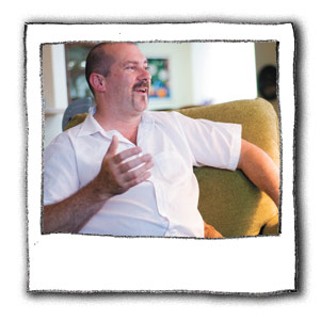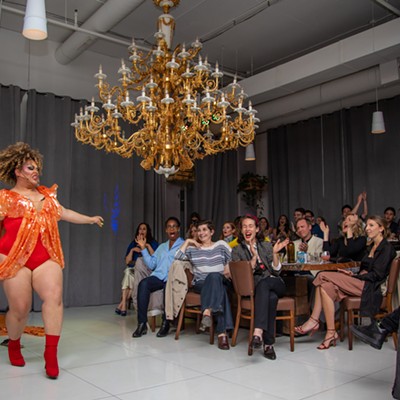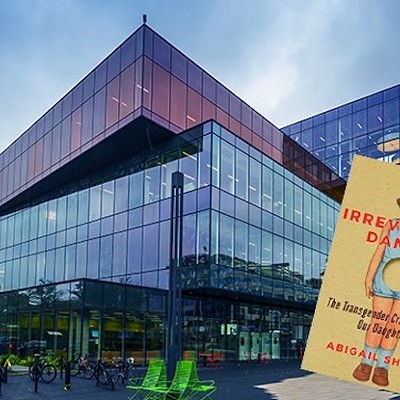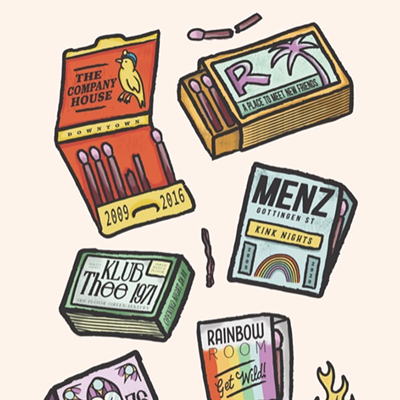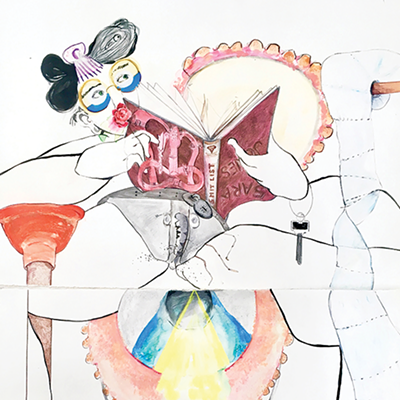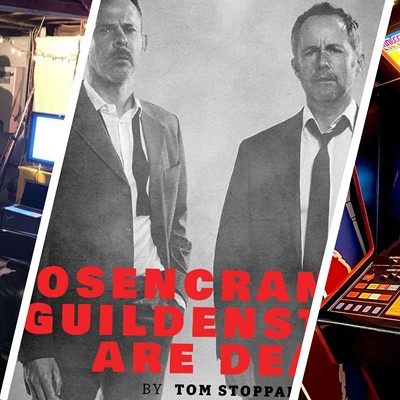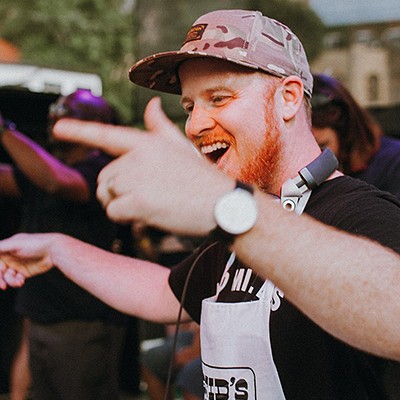Bob Fougere spent the better part of a decade working with the Nova Scotia Rainbow Action Project, and was instrumental in bringing same-sex legislation to Nova Scotia.
Benjie Nycum was a co-founder of Young Gay America and the associated YGA Magazine, promoting community among gay youth. He is currently working as an architect.
Daniel MacKay has been promoting gay culture since 1984. Currently the publisher of queer magazine Wayves, he is also the publisher of a local gay historical encyclopedia (gay.hfxns.org/HistoryProject).
BF: What was it like 15 years ago? Living in NS was not easy. were contemplating retirement, which was pretty difficult at that time because we didn't have all the benefits of opposite-sex couples. When you identify the kinds of things that are needed and there's so much work to be done, then you have something you can get your teeth into and do it. Fortunately, there were other people around that were similarly minded. We did all kinds of good stuff.
BN: I remember being a march, which would have been about a decade ago, and that had a certain sense of meaning to it: expressing one's existence and identity through the solidarity of others in a very public forum. But as a celebration, it maybe feels less like that, although just as important. My recollection of anything militant would have to do with the community getting together around AIDS and HIV and fighting for a certain kind of progress. I'm not sure if we've ever witnessed anything quite like that, before or after.
DM: I totally agree. Being HIV-positive was a death sentence. That much has changed a lot. I can remember getting ready for the Pride Parade, collecting chants that were along the lines of 'We're here, we're queer, we're not going shopping.' We just don't do that anymore.
BF: Now we have all the legislation and all the protection that you could want. That was mainly the work that I have done in the community, around the legislative piece and getting that in place. We told what we wanted and they were ready for it. And at that point in time we had the best legislation recognizing same-sex couples in the country. There was excitement around that, that we could really make it happen.
BN: One of the blessings and the curses of activism is that the mandate is to fight to change something for the better, and the obsolescence of that battle is actually the goal. So, probably what it changed for my generation is the sense of entitlement to that right without ever having fought for it.
I think that activists who have accomplished amazing things have to be able to look back and say, 'Well if no one recognizes me for it, that's a good thing, because I've accomplished the goal.' I recognize that those have been made available to me and I can translate that into anything else, which is where, going forward, the LGBT community needs to focus---less on itself and more on those desperately in need---because we have the legacy, the knowledge, the skills, the tools to rally together as a community and fight for something that we believe in.
The social things will take care of themselves. I think policies, especially around things like mental health---that would start to encompass LGBT issues in a more comprehensive way---we really need to work on that here. Education is way behind where it ought to be. We still have principals and school boards that are willing to say that they don't need policies to protect queer kids in the school.
BM: The legislation is one thing, it sets the rules, but it doesn't set the culture, the moral standards of the community.
BN: But to that point---I mean, if the mayor of Truro happens to have a son or daughter who is gay or lesbian, that son or daughter can survive with that homophobic parent in ways that could not have survived 15 years ago, because that child can access the internet, can access peer support, can find a teacher in the school, knows that there are programs that exist. There are phenomenal resources that just wouldn't have been available.
BM: Once you have the policies in place, then you can get the cultural change. But policy not going to solve the problem. You have to have the whole picture to make it work.
That's what the community has to fight for. That's what Benjie has to fight for---because old guys like me can't do it anymore.
BN: I think it is true that the energy and probably the will to fight and succeed for the things that need to be fought for, but I think they need the support and guidance and love and care that come from people who've come through it as well. So it is up to us to inspire and say 'you know, here are some of the priorities you need to address, here's how we define what is right.'
The other aspect is continued mutual support. This sense of community is something we fought to attain. Does this new generation have what it takes to take on some new battles? Absolutely yes.
DM: I hope that we will somehow consolidate a notion of queer culture that is built on our history, in the same way that people celebrate all kinds of other cultures. I'm thinking that 15 years from now we will be moving in the direction of having a more or less defined culture---we'll still have a Pride day but it will be much of a cultural festival.
BN: That's quite an idea. Eat the food, dance the dance and celebrate the day---a cultural celebration as opposed to a political movement.
BF: Here's my challenge to the next generation, to the next 15 years. One, the gay community is going to integrate into the rest of the community so that it kind of fades away into the fibre. The other thing is that we have a cultural centre, a physical plant.
BN: I think those are very realistic and worthy aspirations.

